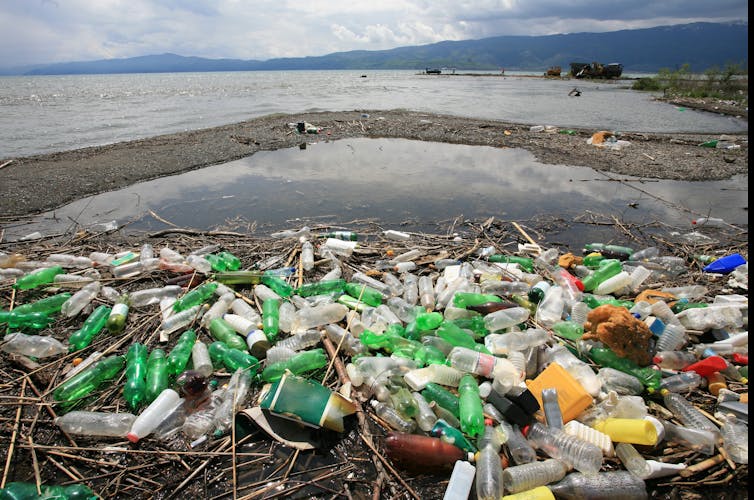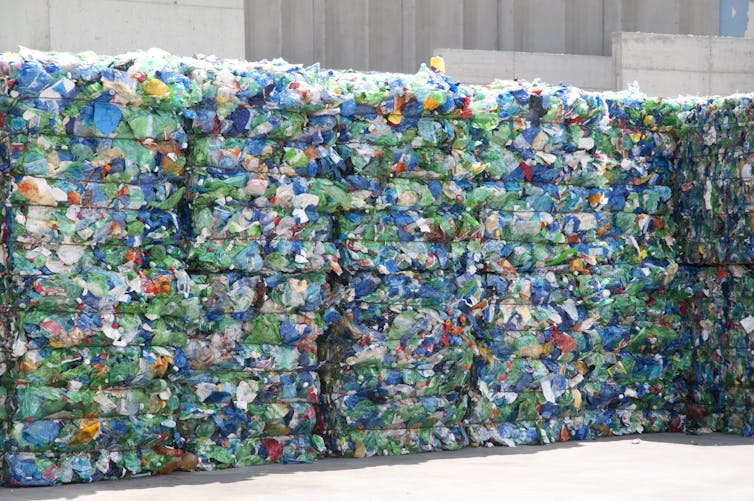Scottish bottle deposit scheme to be blocked – but evidence from Europe suggests it's the way forward
Evidence suggests that Scotland’s bottle deposit scheme would prevent huge amounts of litter from entering the environment.
March 16, 2023 • 6 min • Source
Unrecycled drink containers are a huge problem in the UK. A survey by Planet Patrol, a non-profit organisation, found that the drinks industry was responsible for more than a third of the litter found in the UK in 2020 and 2021. The items included plastic and glass bottles, metal drinks cans, single-use cups and lids.
This is a concern. Litter takes years to degrade, causing harm to wildlife and habitats, and cleaning it up is expensive. Street cleaning costs UK taxpayers an estimated £1 billion each year.
The Scottish National Party has proposed a deposit return scheme. People will pay a 20p deposit when they buy a drink in a single-use container, which they get back when the empty bottle or can is returned. Scottish drinks containers would also need to be specially labelled and tracked.
But the scheme is under threat. The UK government is unlikely to agree to the trade exemption needed to enable trade rules in Scotland to differ from the rest of the UK. And critics argue that a deposit return scheme will be difficult for smaller retailers in an already competitive sector due to the costs of handling returns and registering with the scheme.
However, similar schemes in other European countries have prevented huge volumes of litter from entering the environment. These deposit return schemes offer insight into how effective a measure they can be and provide a possible route for implementation in the UK.

Evidence from Europe
In Finland, a deposit return system for glass bottles was introduced in the 1950s and continues today, having included plastic drinks containers for the past 20 years. The scheme is operated entirely by the private sector, with 5,000 plastic container-return machines located across the country in shops, hotels, restaurants, offices and schools.
Each time a person buys a drink in a bottle or a can, they pay a 15 to 40 cent deposit, depending on the material the container is made out of. The containers are then recycled or the materials are reused on their return.
Almost every bottle and can in Finland is recycled as a result of the scheme. In 2020, Finnish residents recycled 94% of aluminium cans (out of 1.4 billion sold) and 92% of plastic bottles (out of 530 million). By contrast, just 82% and 57% were recycled in the UK respectively.
Norway has achieved an even more impressive recycling rate of 97%. Norway’s deposit return approach is instead supplemented with an environmental tax imposed on bottle producers. The tax is NOK 6.46 (£0.50) per unit of metal and glass and NOK 3.91 (£0.30) for plastic items. To avoid the tax, producers must recycle more than 95% of the containers they produce.
Plastic bottles usually end up being “downcycled” into other items, like fleece materials. But the tax has encouraged producers of plastic bottles in Norway to make bottles easier to recycle by using more uniform and less contaminated materials. Efforts have included using approved bottle tops and glue and labels that are easier to remove. The quality of recycled plastic in Norway is now so high that recycled bottles can be made into new bottles.
Plastic recycling schemes in Europe have also delivered social benefits. The Finnish system allows people to choose to collect their deposit or donate it to charity. In Berlin, those not inclined to return their bottles to the store can leave them under bins for others to collect and claim the reward.

Public acceptance
The success of a deposit return scheme largely depends on what happens to the item once it is returned. Success is not based on economic viability alone. Any deposit return scheme needs to be acceptable to the people who run and use it.
Cost-benefit analysis of two separate deposit return schemes (recycling and reuse) for plastic food trays in Sweden found that the costs are greater than the benefits for recycling, but not for reuse. If you consider the costs involved in packaging, washing and the recycling process, then a return scheme may work best if the item is reused.
In Scotland, concerns about how the scheme will run and its real benefit are chipping away at the confidence of the public and drinks retailers. Research finds that many people in Scotland are unaware of how the deposit return scheme would operate and why it is necessary. Some of the study’s participants even perceived the refund charge as another form of taxation imposed by the Scottish government.
Communication plays a critical role. A different study, which explored the public acceptance of a deposit return scheme in Catalonia, Spain, revealed that the way a scheme is presented to users and how much information is given influences how it is perceived. More information (given over the phone) tended to yield a more positive viewpoint.
Clearly, more information is required for Scotland’s recycling scheme to be accepted more widely.
If designed correctly, deposit return schemes can encourage recycling by raising the value of plastic waste. Recycling and reuse schemes are also made more technically and economically viable if backed up with tax incentives.
But the barrier facing the adoption of a deposit return scheme in the UK is a lack of uniformity. We should not be asking if Scotland should adopt a scheme or not. Instead, plans for the rest of the UK to adopt this approach should be accelerated to get the whole of the UK on the same page.
Sharon George receives funding from Research England.


